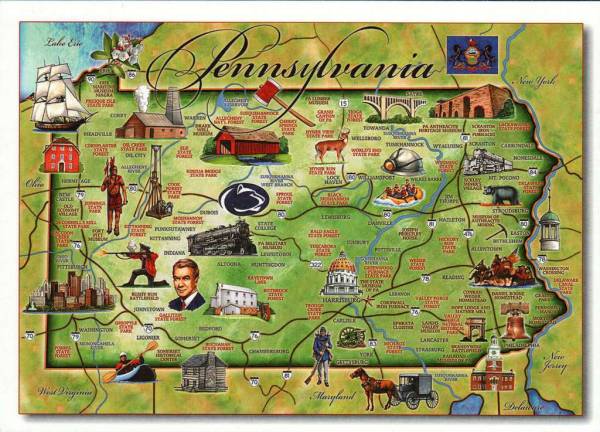The end of 'Alabama inbetween?' 2016 Is a chance to retire a tired stereotype

Two infamous comments, born in long past political seasons, still define central Pennsylvania for too many.
One turned up last week on the popular MSNBC break-of-day talk show “Morning Joe."
Discussing GOP prospects in the Keystone State, former Vermont Gov. Howard Dean referenced James Carville's 1986 comment that it was Paoli and Penn Hills — or, in subsequent iterations, Philadelphia and Pittsburgh — with Alabama in the middle.
The other was coined during Barack Obama's 2008 presidential campaign.
“You go into small towns in Pennsylvania and, like a lot of small towns in the Midwest, the jobs have been gone for 25 years and nothing has replaced them," Obama said during an ostensibly off-the-record San Francisco fundraiser. “...And it's not surprising then they get bitter, they cling to guns or religion or antipathy toward people who aren't like them or anti-immigrant sentiment or anti-trade sentiment as a way to explain their frustrations."
“Alabama in the middle" and “clinging to guns or religion" have been short-hand, back-of-the-hand swipes at Pennsylvania ever since.
“People think it meant that basically there are two areas of the state where people can read and write and treat people with a certain amount of respect, and the rest of the state is redneck trailer trash." public affairs consultant Larry Ceisler said about the Carville quip back in 2008. “It ended up being a slander on people who are living in those places. I would like to see the line retired."
We would too.
To dismiss our region as flyover country is patronizing and inaccurate.
Harrisburg, Lancaster and York all boast burgeoning arts, music and restaurant scenes. Walk through Midtown Harrisburg on a Friday night and you'll find folks enjoying meals at Note, The Millworks and other trendy spots or taking a show at the Harrisburg Midtown Arts Center.
When it comes to rural Pennsylvania, residents there are rightfully proud of their scenic vistas, hunting and fishing, and the small-town values that knit them tightly together.
And, if we're so conservative, how is it that no Republican has carried the state since former President George H.W. Bush won it all the way back in 1988?
This month election may go a long way in reframing the state's reputation while we have the nation's attention.
On April 26, Democratic and Republican voters head to polls to cast ballots in a key, primary election. Pennsylvania will be the biggest prize among the five states holding elections that day.
As such, the state has potentially outsized influence. Republican voters could put out a welcome mat or throw up a speed bump for front-runner Donald Trump, whose high-flying early campaign is of late floundering under the weight of his divisive rhetoric and questionable policy proclamations.
Likewise, depending on how ballots fall elsewhere, Pennsylvania voters could propel Democratic front-runner Hillary Clinton to the brink of clinching her party's nomination, or keep alive the no-longer-quite-so-long shot candidacy of Bernie Sanders.
Politics provided the framework that continues to color national perceptions of Pennsylvania, there's no reason today's politics cannot likewise set the stage for an image-changing turn of events.
If there has been one lesson to come out of the unpredictable presidential campaign of 2016, it is that anything is possible.
Editorial from The (Harrisburg) Patriot News, April 11.